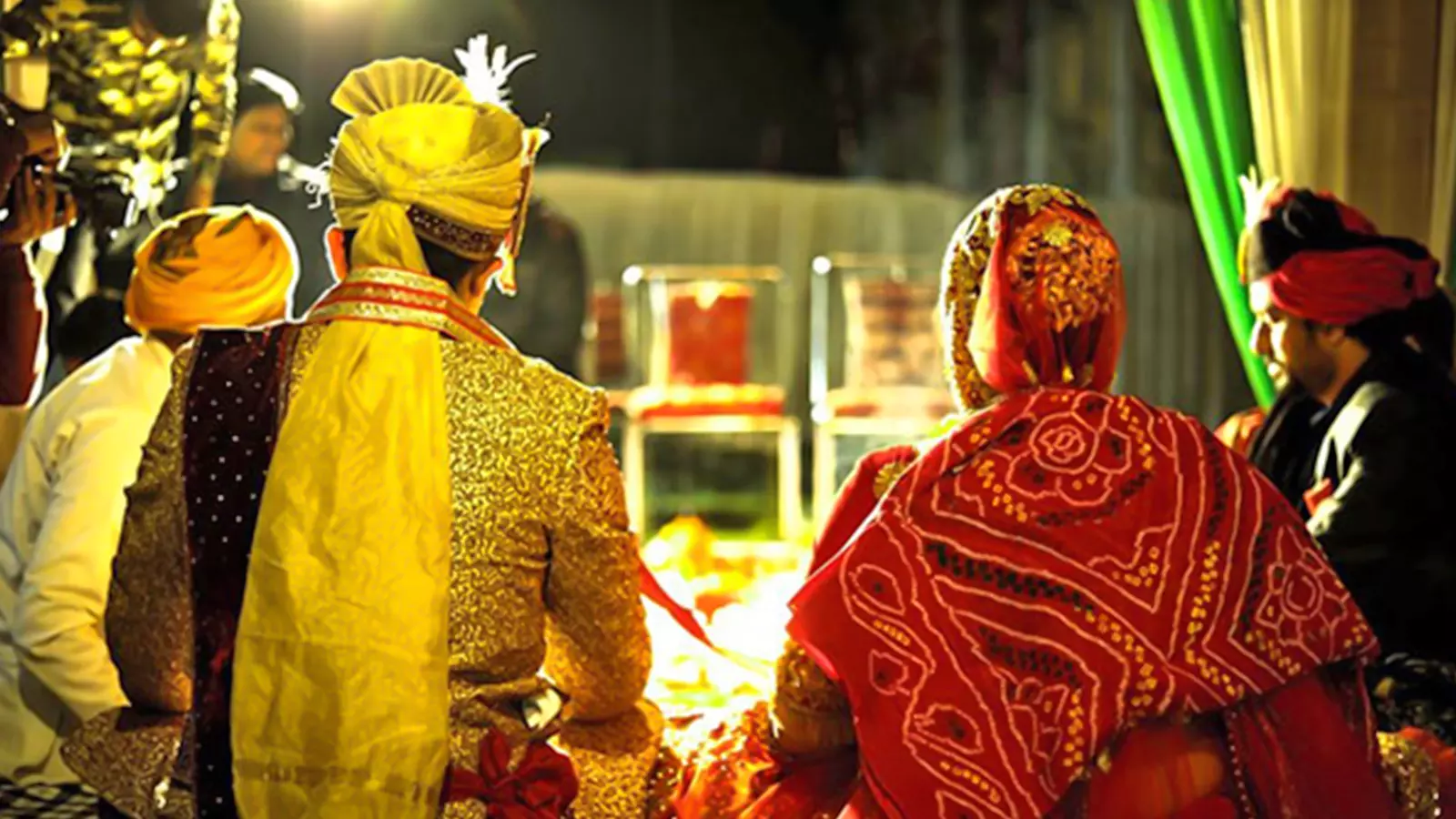
- Home
- India
- World
- Premium
- THE FEDERAL SPECIAL
- Analysis
- States
- Perspective
- Videos
- Sports
- Education
- Entertainment
- Elections
- Features
- Health
- Business
- Series
- In memoriam: Sheikh Mujibur Rahman
- Bishnoi's Men
- NEET TANGLE
- Economy Series
- Earth Day
- Kashmir’s Frozen Turbulence
- India@75
- The legend of Ramjanmabhoomi
- Liberalisation@30
- How to tame a dragon
- Celebrating biodiversity
- Farm Matters
- 50 days of solitude
- Bringing Migrants Home
- Budget 2020
- Jharkhand Votes
- The Federal Investigates
- The Federal Impact
- Vanishing Sand
- Gandhi @ 150
- Andhra Today
- Field report
- Operation Gulmarg
- Pandemic @1 Mn in India
- The Federal Year-End
- The Zero Year
- Science
- Brand studio
- Newsletter
- Elections 2024
- Events
- Home
- IndiaIndia
- World
- Analysis
- StatesStates
- PerspectivePerspective
- VideosVideos
- Sports
- Education
- Entertainment
- ElectionsElections
- Features
- Health
- BusinessBusiness
- Premium
- Loading...
Premium - Events

In a judgement last month granting divorce to a couple on the grounds of ‘mental cruelty’, the Supreme Court bench of Justices Sanjiv Khanna and MM Sundresh said, “There are no objective standards the courts can depend on while testing the allegations of cruelty made by one spouse against the other. There is no test of reasonableness, what is cruelty in one case may not amount to cruelty...
In a judgement last month granting divorce to a couple on the grounds of ‘mental cruelty’, the Supreme Court bench of Justices Sanjiv Khanna and MM Sundresh said, “There are no objective standards the courts can depend on while testing the allegations of cruelty made by one spouse against the other. There is no test of reasonableness, what is cruelty in one case may not amount to cruelty in the other case.”
With no specific definitions, and verdicts that only add to its ambivalent nature, the concept of ‘mental cruelty’ gets trickier to prove in a court of law.
Mental cruelty has been cited as grounds for divorce in many penal codes and codified laws. These include Section 27 (d) of the Special Marriage Act, 1954; Section 10 of The Indian Divorce Act, 1869; Section 13 (1) (ia) The Hindu Marriage Act, 1955.
In the landmark judgements Mayadevi vs Jagdish Prasad (February 2007), Samar Ghosh vs Jaya Ghosh (March, 2007) and Dastane Vs Dastane (March, 1975), the Supreme Court issued a list of examples depicting mental cruelty — from refusal to have intercourse, get pregnant, ill-treatment by in-laws, undergoing abortion without husband’s consent to refusing to provide food to the spouse and the children, threatening suicide, verbal abuse among many other acts.
Conventional legal definition of mental cruelty, according to Section 13(1) (ia) of The Hindu Marriage Act 1955, is “the behaviour of one spouse towards the other which results in a reasonable apprehension in the mind of the latter that it is not safe for him or her to continue to stay in the matrimonial relationship anymore with the other”.
But in a post-pandemic, digitally-overwhelmed modern marriage, the concept of mental cruelty is far more complicated than one can even begin to understand.
“Abuse is rarely physical these days,” says advocate Jeenu Abraham, Alappuzha district court and counsellor, family court. “It is in the words, subtle and invisible, and therefore extremely difficult to identify and accuse,” Jeenu tells The Federal.
Ridiculing the spouse in front of others, humiliating his or her family, expecting the spouse to toe the line culturally, annoying him or her by intervening in every conversation, checking one another’s digital space, refusing to let the wife’s family visit – instances are plenty, but none of it conforms to any conventional norm of mental cruelty. Simply put, “a relationship that does not give mental pleasure to a spouse, can come under mental cruelty. The next step is in proving it.”
“Typically, the husband is the offender. And he does not even have to lay a finger on her. Verbal threats alone will do,” says Karuna Baskar, managing director of ResilienceWorks, Bengaluru, adding that cruelty is on five different levels — emotional, physical, mental, financial and sexual.
“Telling the woman that he will hit her/kill her is as bad as doing the deed. If the emotional impact of these statements is fear, it amounts to mental cruelty. On the other hand, if the husband complains of a wife who says the same, he’s ridiculed by society,” Karuna says.
“The fact is whoever has greater power will be the cruel partner,” she adds.
Modern marriages have a different power dynamic at play.

Experts say abuse is marriages is mostly mental these days. Photo: PTI
“In traditional marriages, the wife was less educated and financially dependent. Her post-marriage role was entirely confined to being a wife and a mother. That was deemed the ideal and the relationship was not equal, by any means, Karuna says, adding, “Today, it has all changed.”
“Forcing her to dress a certain way, trying to change her behaviour, controlling her mobility, meddling in her finances are all becoming grounds for mental harassment today,” says advocate Anjali, accredited mediator and family and civil lawyer, Ernakulam.
But the problem lies in proving mental cruelty.
“Toxic relationships are the most difficult to prove,” says Karuna. It starts with subtle insinuations, laced with humour. From their experience, family counsellors and mental health professionals say the biggest example of toxicity in a relationship is belittling the family of the spouse in public. The insults are repetitive, and when called out, the apologies are also repetitive. The next move is to gradually isolate the spouse from her family.
“By bringing up trivial comparisons, he’ll tell her how much he dotes on her, far more than her own family. They don’t really care for you, why bother them for everything — he’ll ask,” Karuna explains. “Eventually, it reaches the stage of open threats — if you go, then don’t bother coming back.”
Body-shaming is another common form of cruelty wherein there’s never an apology, but always the excuse that it was only in humour. Spouses make physical comparisons, starts with film stars or porn actors and then move on to men and women they know.
A 27-year-old MBA graduate was forced to take 32 glutathione injections before her marriage because her mother-in-law found her ‘dark’ complexioned. “She was of a wealthy family and so it never came up during the proposal stage. But once the engagement was done, the boy’s mother kept calling her and insisted that she take those injections before the wedding day. In a nice way, she was able to persuade the would-be bride, making her feel special,” Anjali says.
After the marriage, the woman was constantly asked to “go put something on your face”, her complexion became the topic whenever guests came. “Her self-confidence hit rock-bottom and eventually she came seeking legal help.”
Another 26-year-old was told she needed to lose a few kilos before the wedding “just to look nice”. She enrolled in a gymnasium and managed to look “somewhat slim” on her wedding day but within three months, she put back all the weight and a little more. Her husband refused to take her anywhere “in that shape” which resulted in her starving herself and falling ill.
“Today, she is taking treatment for PCOD, the medical reason being her obesity, which only added to her marital woes,” Anjali shares. The husband has filed a case for divorce and the woman has become depressed and reclusive.
Unlike an abusive relationship which is cyclic — where an act occurs, followed by an apology, followed by a period of peace, and repeat — toxic relationships are more subjective. A violation of boundaries definitely occurs, but the offender may not even realise that he or she is being toxic.
“In counselling, the only way to prove a toxic relationship is to ask the spouse to weigh the impact of the spoken words on his or her well-being,” Karuna says.
Meaning, intention is always arguable, but the impact is real and a fact. “Maybe this is not what you meant, but this is how I feel — that is one way we make them evaluate their relationships. Another standard is to ask — what would another reasonable person think of this statement or situation,” she explains.
Gaslighting, Karuna says, is another psychological manipulation near impossible to prove as grounds for mental cruelty. “In this case, the woman is made to doubt herself. She starts to second-guess in every aspect. Absorbing guilt becomes part of her psyche. She is not able to conceive or think coherently, to the extent that she starts believing whatever she is told.”

The Supreme Court says there are no objective standards the courts can depend on while testing the allegations of cruelty.
According to (website content) Crystal Raypole, editor for GoodTherapy, the common phrases used by spouses in gaslighting are:
You’re crazy. That’s not what happened.
You are imagining things.
You’ve no idea what you’re talking about.
I was only joking, don’t be so touchy.
It is the lowest form of manipulation, intended to confuse a person, give them a false sense of perception and ultimately get them to meekly follow.
A relatively new concept being talked about by mental health professionals and social scientists today is microaggression. It means acts that infringe on a person’s time, space, energy and mobility. It could be through micro-assaults (verbal or non-verbal attack, name calling, avoidant behaviour or purposeful discriminatory action); microinsults (rude, insensitive talk that demeans a person’s identity) or microinvalidations.
In families, microaggressions manifest in the form of verbal and non-verbal insults involving gender, complexion, physical features, academic performances, nicknames, denial of equal opportunities and culture promoting self-stigma.
Presenting a paper on the same at the Annual National Conference in Visakhapatnam, 2022, Dr Varghese P Punnoose, HOD of Psychiatry, Kottayam Medical College, and general secretary, Indian Association for Social Psychiatry, said the mental health consequences of microaggressions are anxiety, self-censoring, deflation, flattening of self-confidence and depression.
“In risky relationships, these microaggressions are very difficult to prove.”
Dr Punnoose recalls a couple who came for counselling because the wife was constantly feeling guilty and becoming prone to self-blaming. “Their child was weak academically. The husband would give snide remarks on her lack of education, making it sound like a joke but constantly driving in the idea that the low intellect was owing to her DNA. Even her family started to think it could be true.”
It was a classic case of microaggression. Another form of subtle mental cruelty is when the spouse becomes a passive aggressor. “There won’t be a single episode of physical or verbal abuse, but a cunning and cruel manipulation that will have a far worse outcome.”
Dr Punnoose recalls a case in which the wife took up a teaching job in a fancy school when the husband lost his job during the pandemic. He did not like the move but he never said a word. Instead, without any warning, he took both his daughters out of their private school and enrolled them in a local government school. His reason was — my wife is working now, she doesn’t have the time to devote to their studies, so let them study in a school which teaches less. He started telling relatives it was because he could not afford the fees, which made her feel extremely guilty.
The SC judgement, authored by Justice Sundresh, talks about this very aspect in saying, “each case may be different, a new type of cruelty can crop up”. Because the concept of cruelty “differs from person to person depending upon his upbringing, level of sensitivity, financial position, social status, customs, religious beliefs and value system.”
Even the concept of ‘mental cruelty’, the verdict says, “changes with the passage of time, impact of modern culture through print and electronic media and value system”.
“Proving it is the worst ordeal,” says Anjali. Spouses have recordings of everything — from audio messages, texts, emails to images of physical scars and videos. Some allegations are genuine, some exaggerated.
“The worst is when they bring children to the court to speak against the parent to prove the charge of mental cruelty. There are instances where the wife has got the child to allege POCSO charge against the father, in order to get divorce under mental cruelty and sole custody.”
Whatever be the legal verdict, says Dr Punnoose, at the end of it all, when you ask the question — who was the victim? — the fact is, it is the husband, the wife, the child… it is everybody.

